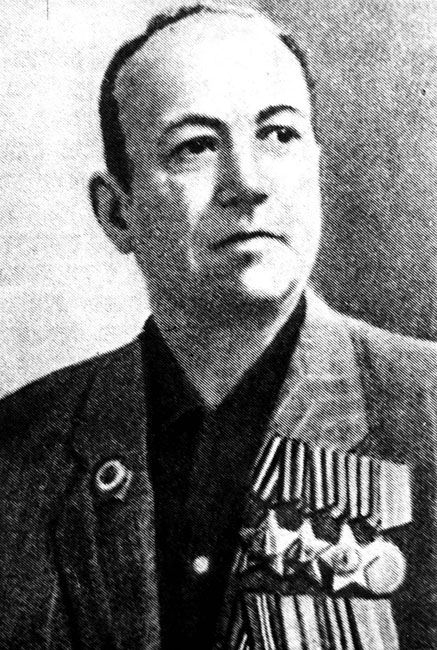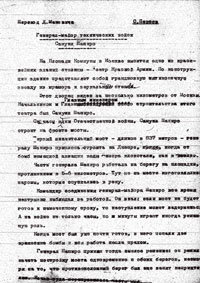Samuil Shapiro was born in 1901 in Odessa. His father Zvi-Hirsh worked in the administration of a brick factory. In 1919 Samuil volunteered to join the Red Army and fought against the troops of Petliura and Denikin. In 1924 Shapiro graduated from a military school and in 1928 from a military-technical academy.
From the very beginning of the Soviet-German war until August 1943, he was head of the Main Administration of Military-Industrial Construction of the Council of People's Commissars (Council of Ministers of the USSR) with the rank of major-general of technical forces. In August 1943 he was appointed commander of the 62nd Engineering-Sappers Brigade on the Southwest Front and then on the 3rd Ukrainian Front.
In the fall of 1943, during the crossing of the Dnieper River, within a very short period of time, Shapiro was able to organize the restoration to working order of a lumber-cutting factory, which made it possible to construct the boats and a pontoon bridge that were required for the crossing. However, when the bridge was almost ready, German troops succeeded in destroying part of it. Then Shapiro made the bold decision to restore the bridge from both banks, one of which was occupied by the enemy. With a number of sappers, he crossed over to the enemy-held bank and directed the work on the bridge there. By morning the bridge was repaired.
During the military operations to liberate Poland from Nazi occupation, in a few hours Shapiro's sappers succeeded in crossing the Vistula and constructing the first pontoon bridge. In four days of that military operation the operation directly led by Shapiro, under heavy enemy artillery fire and bombing, six bridges were constructed and 36 battalions, 741 artillery pieces, and 38 tanks crossed over them. For this engineering feat at the Vistula Shapiro was awarded the Order of Lenin. In the course of the war he was also awarded the Order of the Red Banner, and the Orders of Kutuzov, 1st class, Suvorov, 2nd class, and the Patriotic War, as well as several other honors.
After the war Samuil Shapiro served as the head of the engineering forces of the Baku Military District and, then, as assistant commander of the forces of the Belomor (White Sea) Military District. Shaprio left active service for the reserves on August 8, 1953.
He died in 1981.








